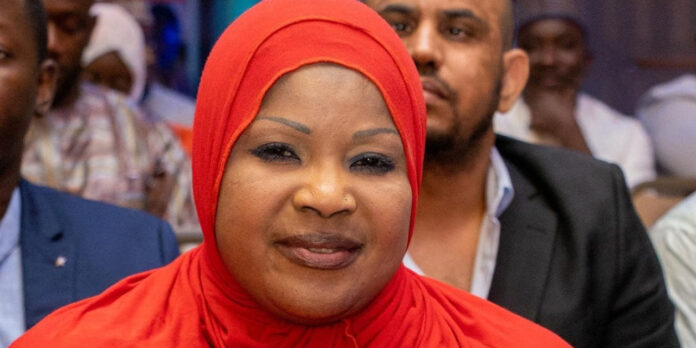On August 2, 2023, the Court of Commune IV in the Malian capital, Bamako, sentenced the activist and social media influencer, Rokia Doumbia, also known as #Madame vie chère, to one year in prison in the continuing crackdown on critical voices in the troubled country.
The court also hit Doumbia with a fine of one million CFA francs (USD1,600). In a poor country with an average monthly income of USD 110, it will require more than the entire annual income of the average Malian to pay the fine.
And what is the activist’s crime? She had simply spoken out about the security situation and the cost of living in the country in a live TikTok broadcast.
“Under your governance, things are not going well. This transition is a failure with 0%. I wouldn’t even give 1%, but 0%. That’s not why you staged a coup d’état. When you stage a coup because your predecessor failed, the aim is to do better in order to surpass him,” she had said.
“No Malian lives in peace. Insecurity is gaining ground everywhere. During my live shows, people react by denouncing the soaring prices of rice, diesel, oil and sugar”, the blogger continued.
In the current context of “pensée unique” (one-track thinking), amidst the desperate campaign by the junta to win and be seen to be winning the war against the raging insurgency and against the economic fallout of its recent geopolitical decisions in respect of its relations with the West, it would have been naïve for the most ardent optimist to expect Doumbia to have gotten away with her forthright assessment.
And sure enough, the blogger was taken into detention on March 13, 2023. Two days later, she was arraigned on charges of “inciting revolt”, “disturbing public order through the use of information and communication technologies” and “insulting and abusing the Head of State.” She denied the charges and was remanded into custody.
Although Doumbia’s parents, on May 3, paid the bail required for her release, the public prosecutor, Idrissa Hamidou Touré, immediately issued a new committal order against her, leading to her return into detention.
Her lawyers have filed an appeal, insisting that the offences leveled against their client are not covered by the law on cybercrime.
Doumbia joins a long list of activists including religious leaders, media organizations and journalists who have fallen victim to the hermetic closure of Mali’s civic space.
Ras Bath and Imam Dicko’s ordeal
On July 11, 2023, the radio and television host Mohamed Youssouf Bathily, popularly known as “Ras Bath”, appeared in court for the umpteenth time since his detention in March, 2023. The journalist, who is also spokesman for the civil society group Collectif pour la défense de la République (CDR), alleged that former prime minister Soumeylou Boubèye Maïga had not simply died in custody, but had been killed. On March 13, 2023, he was placed under a committal order for “simulation of an offence.” He was subsequently acquitted of the charge. However, instead of being released, he was returned to prison on a new charge of “harming the credibility of the State.”
Another person who has found himself on the wrong side of the junta’s humour is influential cleric, Imam Mahmoud Dicko. On June 22, 2023, Imam Dicko had his diplomatic passport confiscated upon his return from a trip to Mauritania.
The highly influential and outspoken religious leader had recently denounced certain “inappropriate actions of the transitional authorities.” He also openly opposed the constitutional reform proposed by the military government.
A leaf from the book of 2022
With these attacks on press freedom, the authorities are continuing in their repressive footsteps from 2022, when they went on the rampage against critical opinions and media organizations. For example, they expelled Benjamin Roger, a French journalist for Jeune Afrique, less than 24 hours after his arrival in Bamako. The junta also suspended the French stations, France 24 and RFI over false publication charges, and Joliba TV together with its journalist, Mohamed Halidou Taher, following a defiant editorial.
On November 23, 2022, Mali’s Judicial Investigation Brigade (BIJ), issued a summon for journalist Malick Konaté to appear and respond to charges of “high treason” against him. The summon followed threats from pro-government elements against the journalist for collaborating with a French channel BFM TV to produce an investigative story that was critical of the activities of the Wagner Group. Konaté was forced to flee the country.
The Media Foundation for West Africa (MFWA) is deeply concerned about these repressive tendencies. They hinder open dialogue, impede and violate the basic, irreducible rights to freedom of expression and access to information. It is imperative that the Malian authorities allow citizens, journalists, activists, and leaders to freely express their opinions. This will enable the government to correctly gauge public opinion and respond appropriately to citizens’ concerns. It is a better option than repression which is liable to create a Molotov cocktail of pent-up resentment, frustration and disenchantment which might explode at any time.
